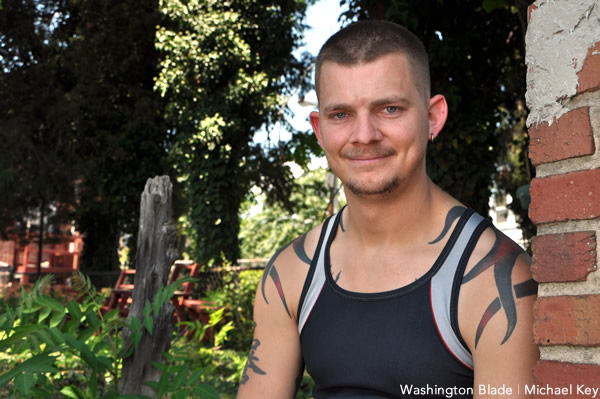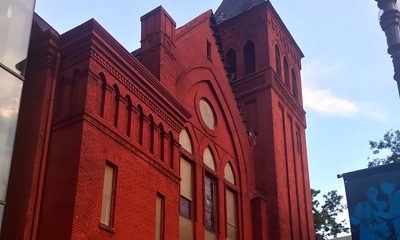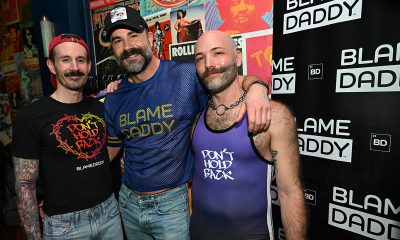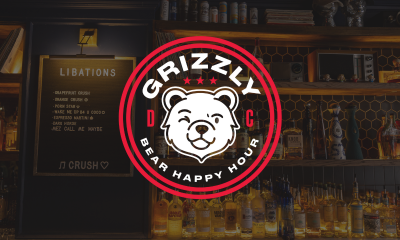Arts & Entertainment
Queery: Charger Stone
The Bear Happy Hour organizer answers 20 gay questions
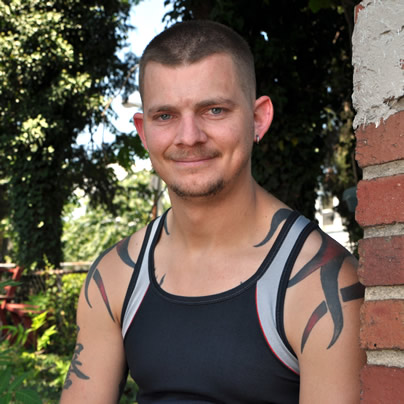
When Nicholas Baatz was told not to re-enlist in the Marines as he’d planned after being outed in 2005 — his tour was up in five months and he claims it would have taken military brass longer to have him kicked out under “Don’t Ask, Don’t Tell” — it was a crush that forced him to rethink his career path but he sees it now as a roundabout blessing.
“I thought about re-enlisting once they got rid of ‘Don’t Ask, Don’t Tell’ but I really love what I’m doing now and where life has taken me, so I don’t want to give that up,” he says.
Baatz, known as Charger Stone in D.C. bear circles, runs D.C. Bear Crue which has several events but is mostly known for its 6-11 p.m. weekly Friday evening happy hour at Town (dcbearcrue.com). He also manages Unleashed Massage Studio in Northeast Washington.
Baatz came out after a two-year marriage to a woman failed. He and partner Scott Gunn, a cop in Anne Arundel County he met in 2011, plan to get married next May. Baatz proposed at Bear Happy Hour.
The 32-year-old Groton, Conn., native lives in Hyattsville, Md., with Gunn and their three Great Danes and one German Shepherd — Angel, Lucky, Misty and Tommy.
Baatz spent time in Japan and Iraq during his military years. He enjoys his motorcycle and cleaning in his free time (“I’m a little OCD, so I can’t relax unless everything is in its place”). He plans to graduate in the fall from DeVry University with a degree in technical management.
(Blade photo by Michael Key)
How long have you been out and who was the hardest person to tell?
My first boyfriend outed me to my family and outed me to the Marine Corps. That was in 2005. The hardest thing was admitting it to my mother. Once she knew, I didn’t care who else did.
Who’s your LGBT hero?
I met a lot of people who have done great things for the community, but I don’t actually have anyone in particular.
What’s Washington’s best nightspot, past or present?
Bear Happy Hour has always been home since I came out. And I’m proud to have been able to manage that event for the past three years.
Describe your dream wedding.
When I think about Scott and I getting married, it’s not the wedding itself I think about. I think about the people who would be there. I would love for my very conservative Baptist family to be there to support me. Not because they think being gay is OK (because they will never believe that), but just to support me in the fact that I’ve found someone I want to be with for the rest of my life. Unfortunately, though I’m closest to my mother more than any other family member, I doubt she will even be there for it.
What non-LGBT issue are you most passionate about?
I think we as a community spend so much time focusing on “our rights” or the attitude that we are “owed” something, that we forget the simple things like just treating each other with respect.
What historical outcome would you change?
In 2005 when my first boyfriend outed me to the Marine Corps I had no idea what to do. I had a few months left on an eight-year contract and they told me to not reenlist or they would kick me out under “Don’t Ask, Don’t Tell.” If I knew then what I know now about the support structure for the LGBT community in the armed forces, I would have stayed in. But I was scared, alone, and had no one to go to for help. I didn’t know anything about the community back then. The flip side to that is that if I would have stayed in I wouldn’t be where I’m at now and I wouldn’t have met my fiancé, or owned two small business, or be running the Bear Happy Hour. So I guess maybe I should be thanking him?
What’s been the most memorable pop culture moment of your lifetime?
Oh god, pop culture — most memorable? I would have to say no clue. Love the music, ignore the people.
On what do you insist?
I insist that people stay in between their own white dotted lines on the road and use their blinkers when changing lanes. I have no problems getting out of the car and explaining to you why I think you shouldn’t have a driver’s license at the next red light.
What was your last Facebook post or Tweet?
Facebook: “Apparently (so I overheard) real men drive Miatas.”
If your life were a book, what would the title be?
“Rumor Has It: This one time …”
If science discovered a way to change sexual orientation, what would you do?
Not a damn thing.
What do you believe in beyond the physical world?
I grew up in a Baptist church and was heavily involved in the church until I was 24. I guess you could say I am a questioning Christian. I believed all my life that being gay was wrong, and here I am. So what else is wrong?
What’s your advice for LGBT movement leaders?
Be better at it than the opposition.
What would you walk across hot coals for?
I’d do it for a couple million.
What LGBT stereotype annoys you most?
That for some reason being gay equals “I am a big black woman stuck in a twink’s body…. GUUUUURRRRRL!!!” Of course we perpetuate the stereotype so we should be blaming ourselves for it.
What’s your favorite LGBT movie?
“A Dirty Shame”
What’s the most overrated social custom?
Putting the seat down on the toilet. Honestly — you’re a big girl, you can put it down yourself.
What trophy or prize do you most covet?
I don’t really care too much about trophies or prizes. I have a few but I couldn’t really care less.
What do you wish you’d known at 18?
Invest in Apple and Living Social.
Why Washington?
I was stationed at Marine Corps Base Quantico when I was outed. I found support in the bear community so I made D.C. my home.
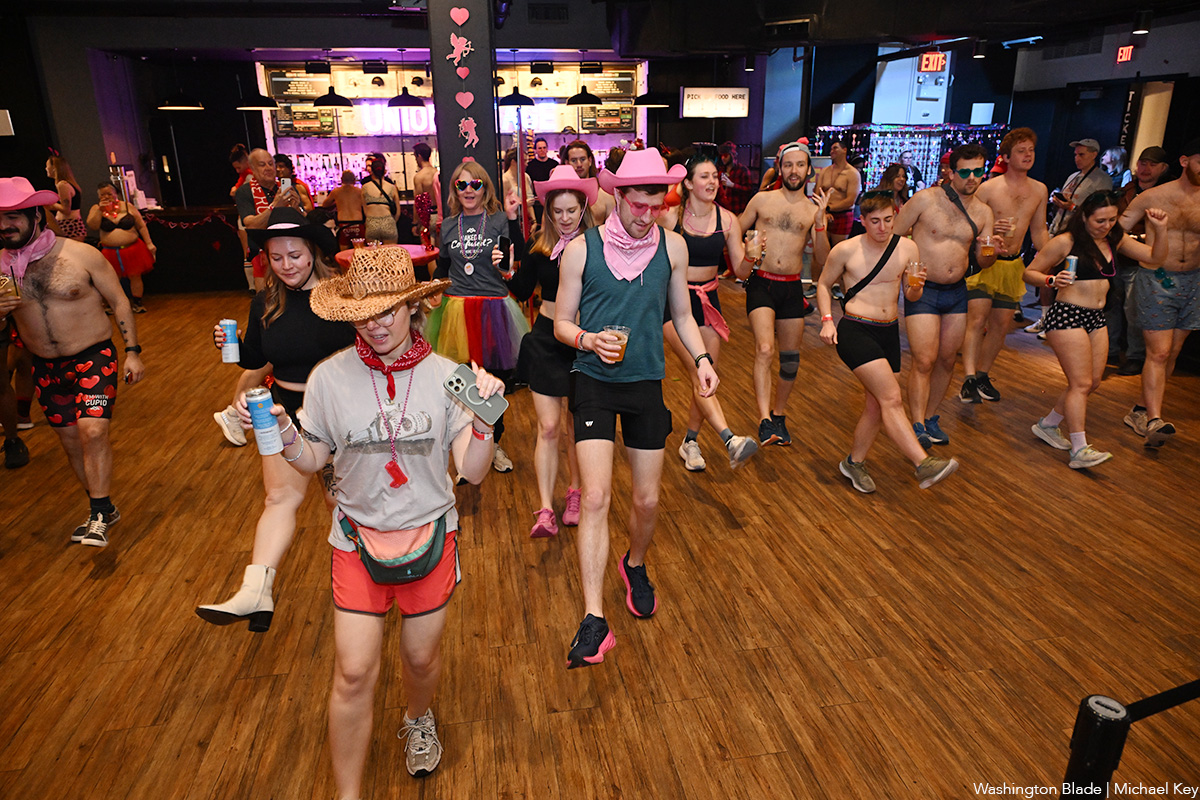
Cupid’s Undie Run, an annual fundraiser for neurofibromatosis (NF) research, was held at Union Stage and at The Wharf DC on Saturday, Feb. 21.
(Washington Blade photos by Michael Key)
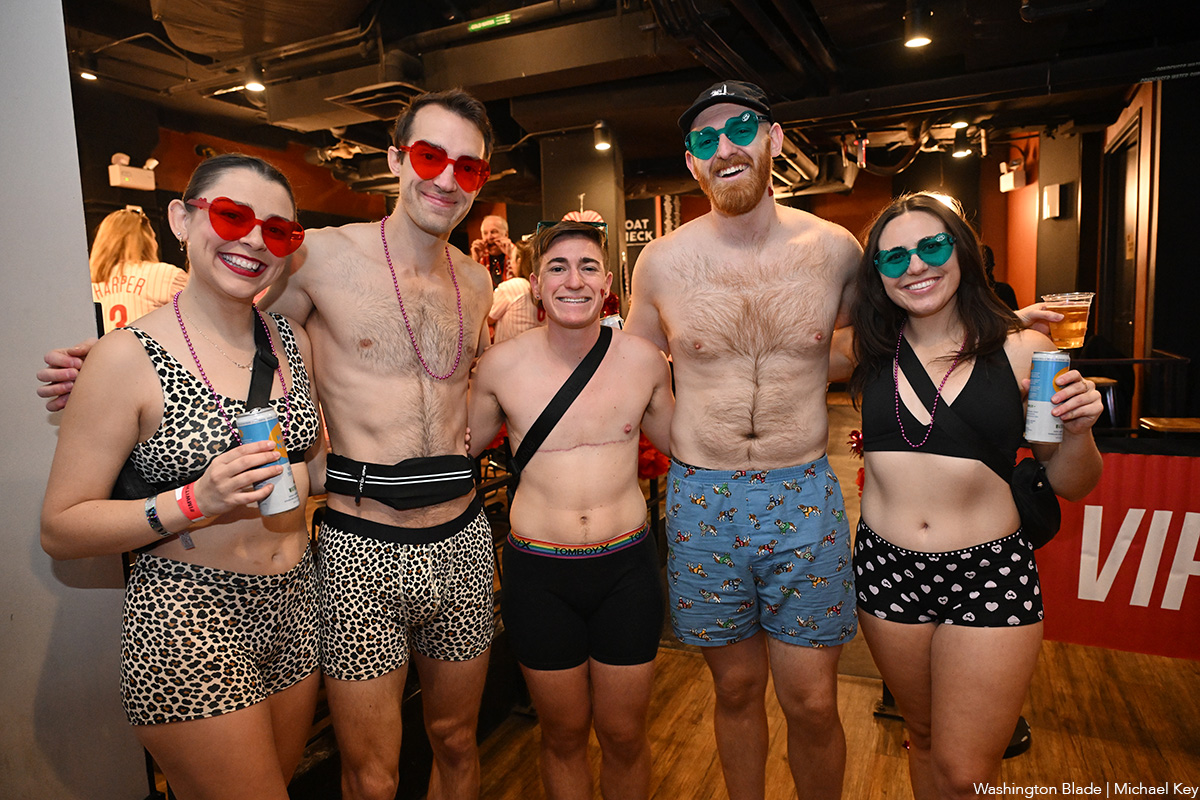
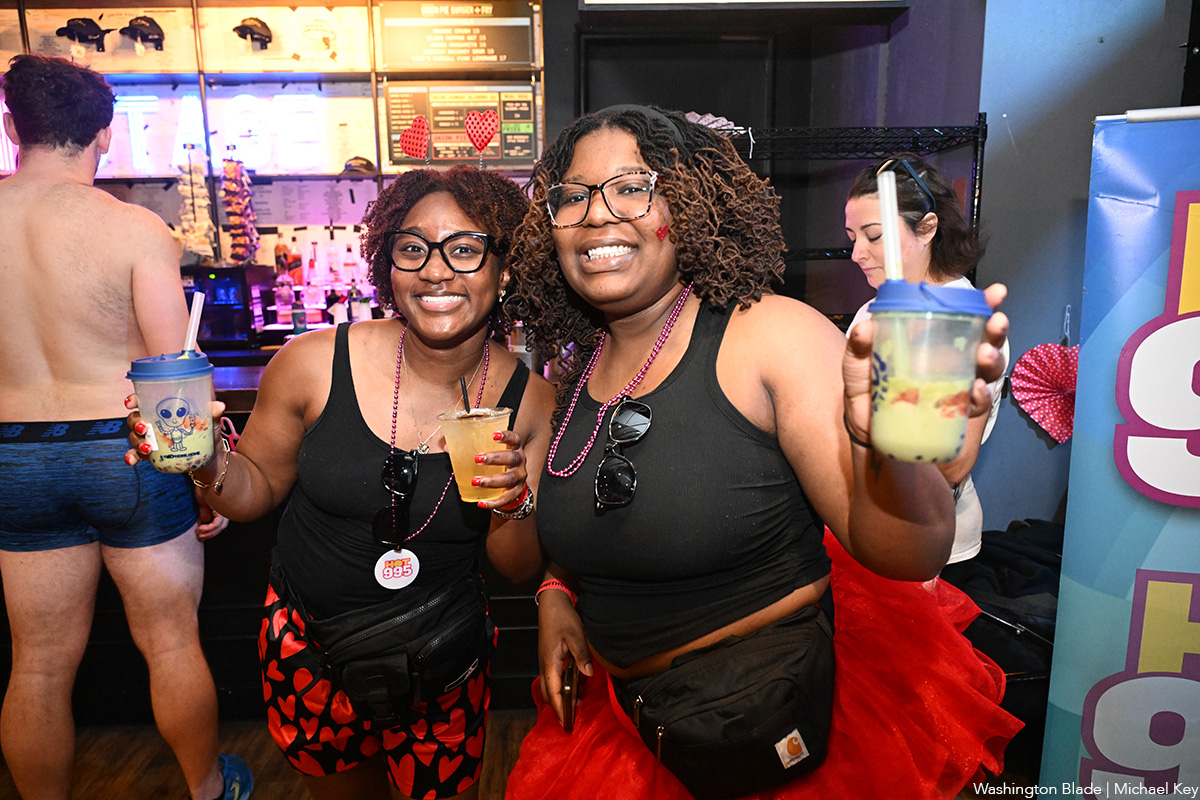
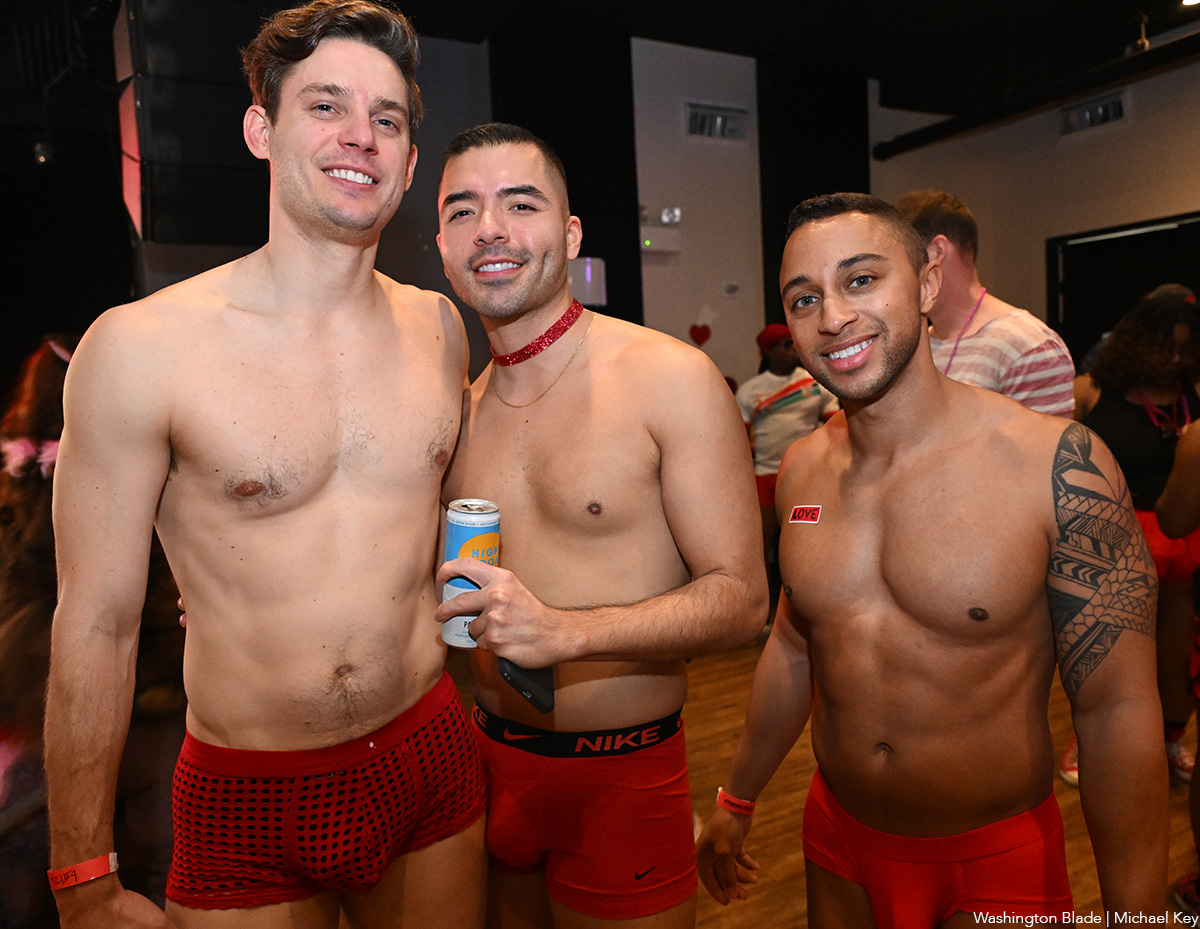
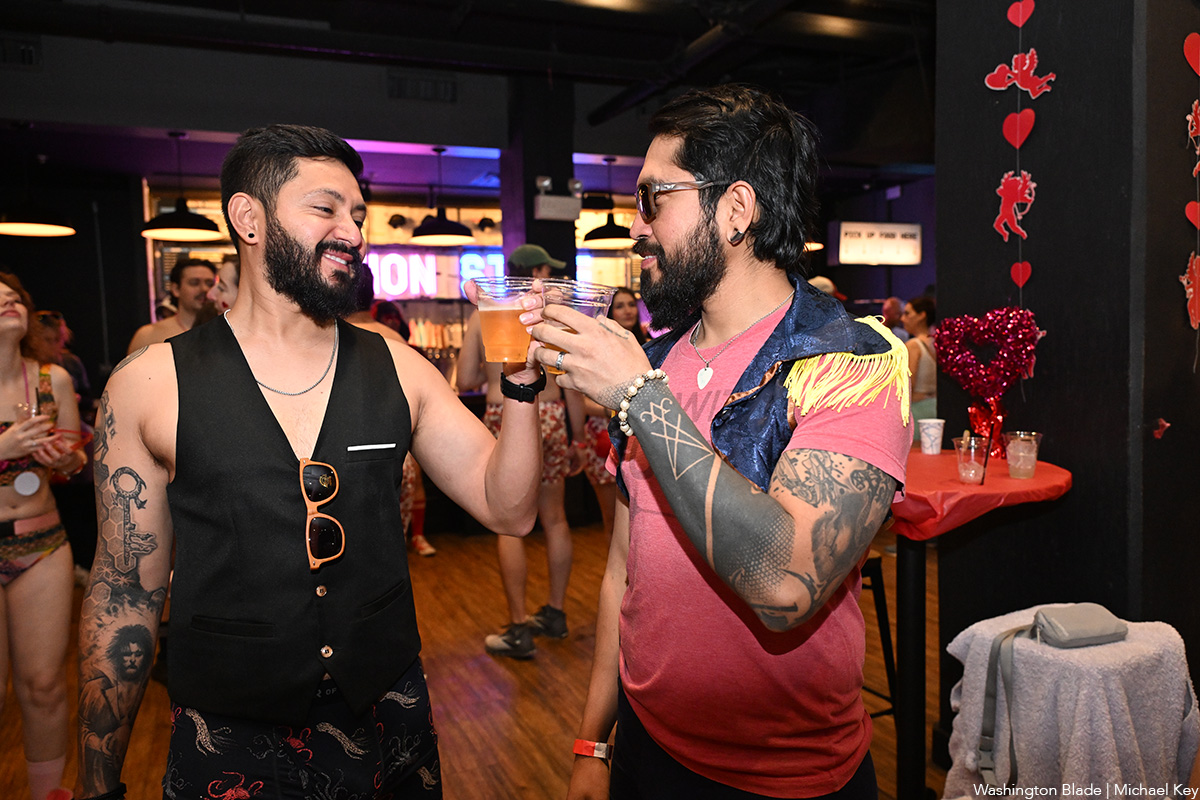
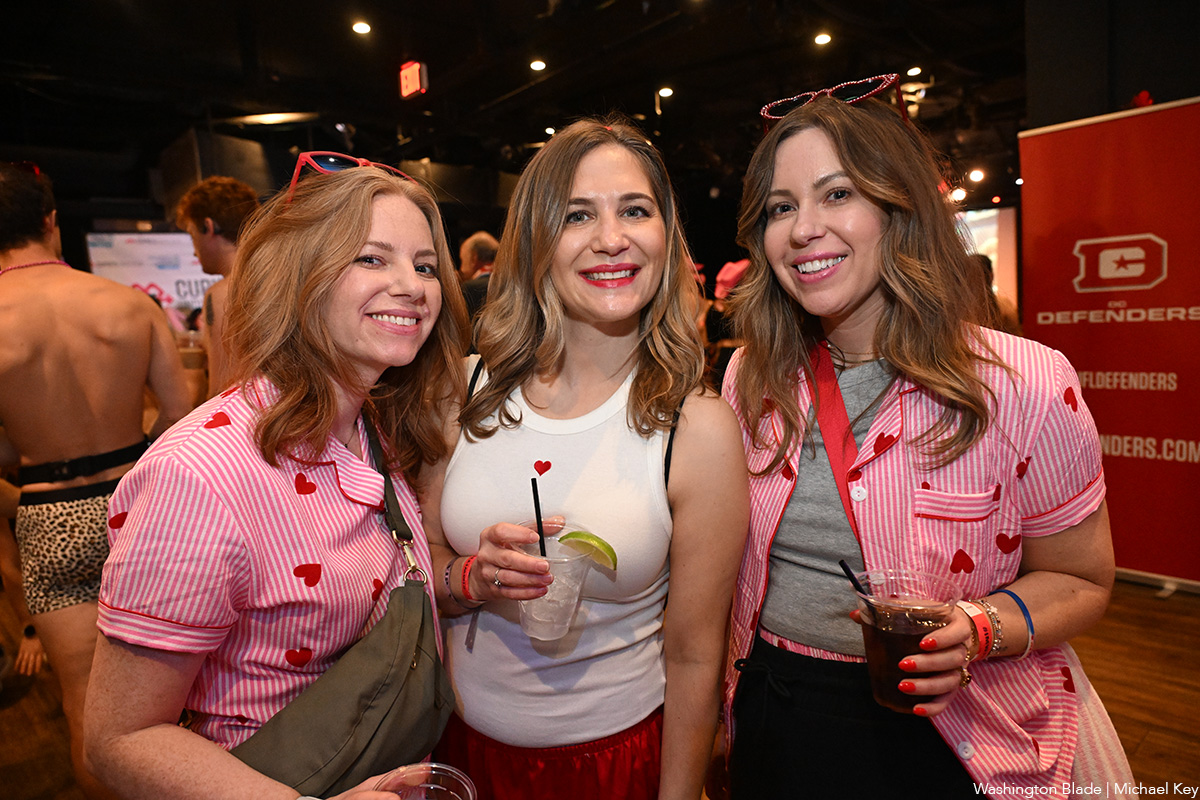
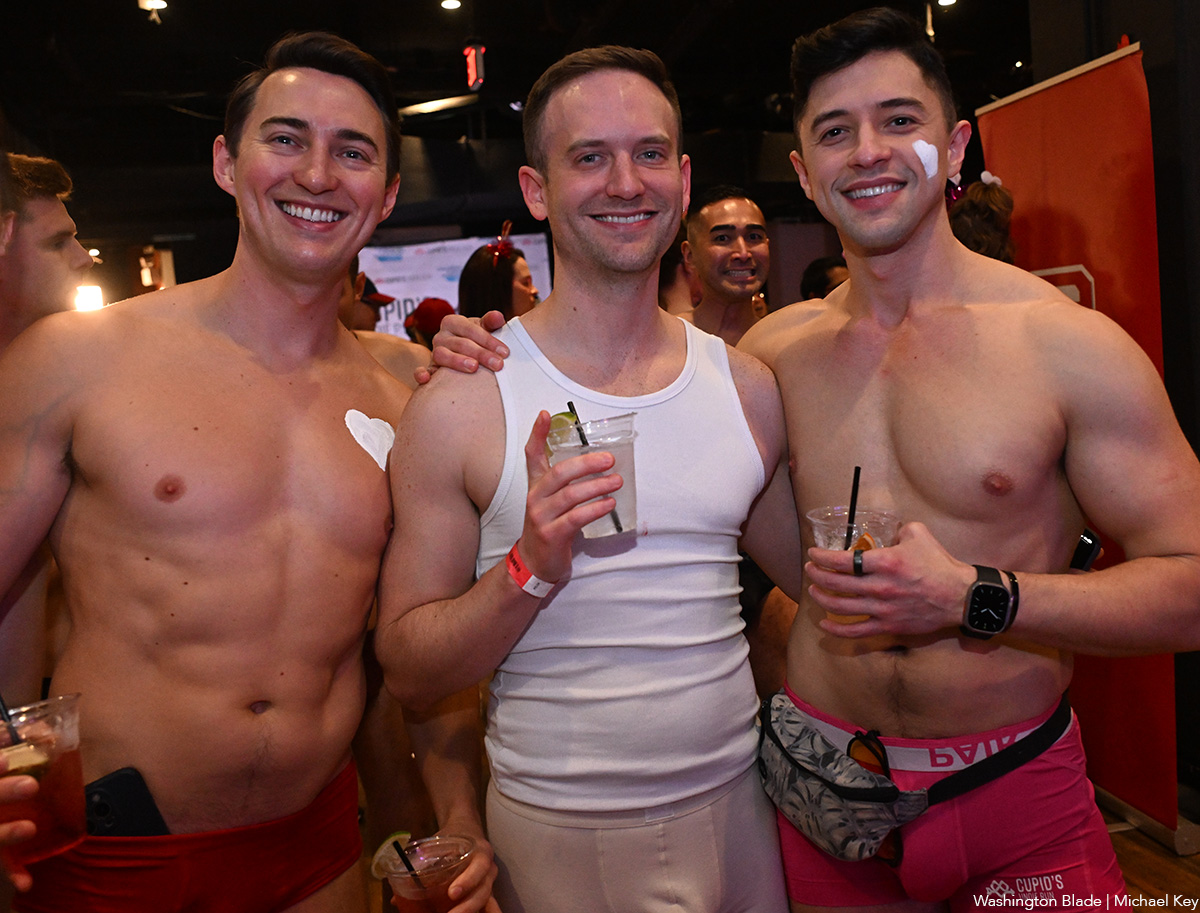
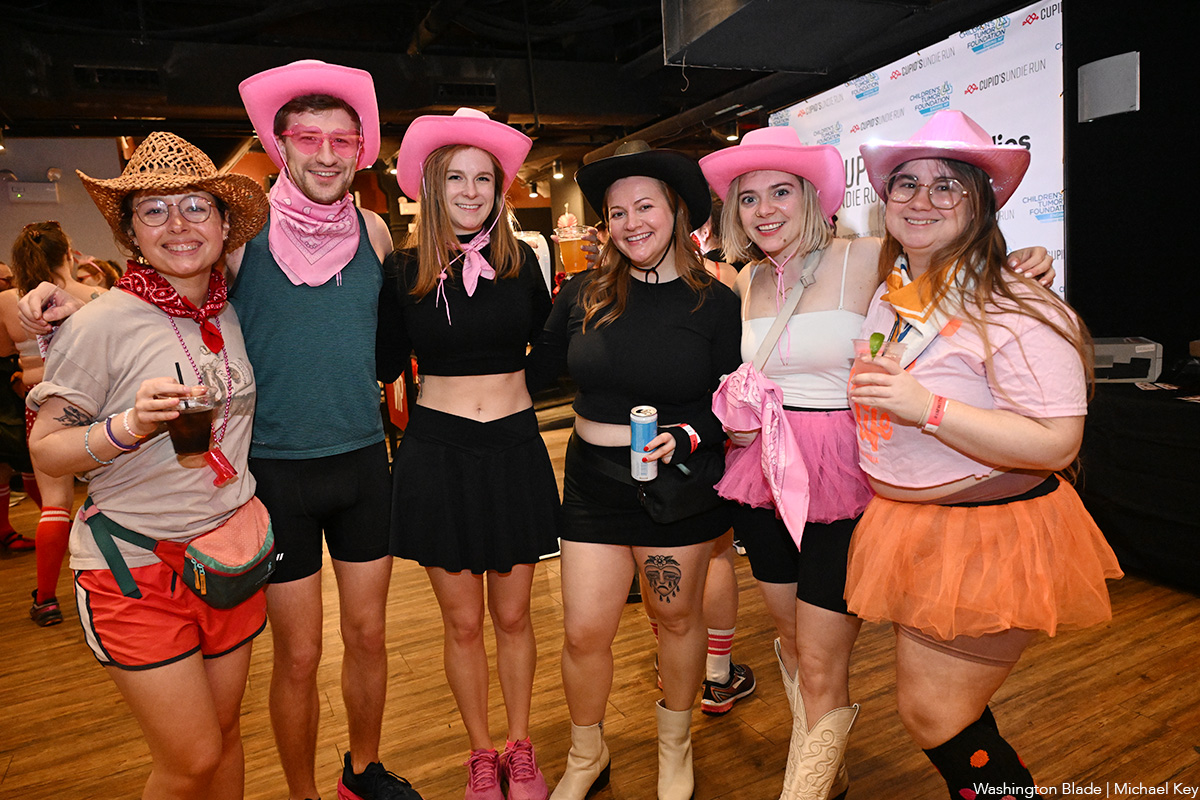
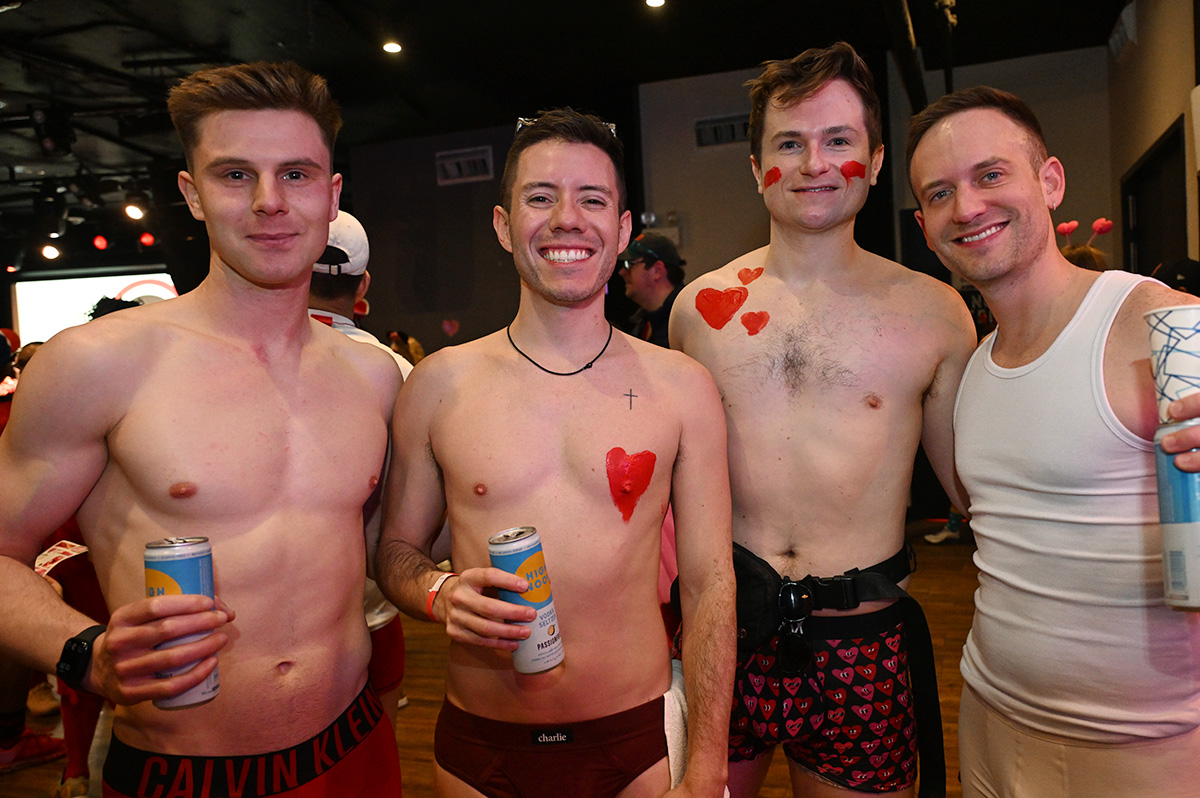
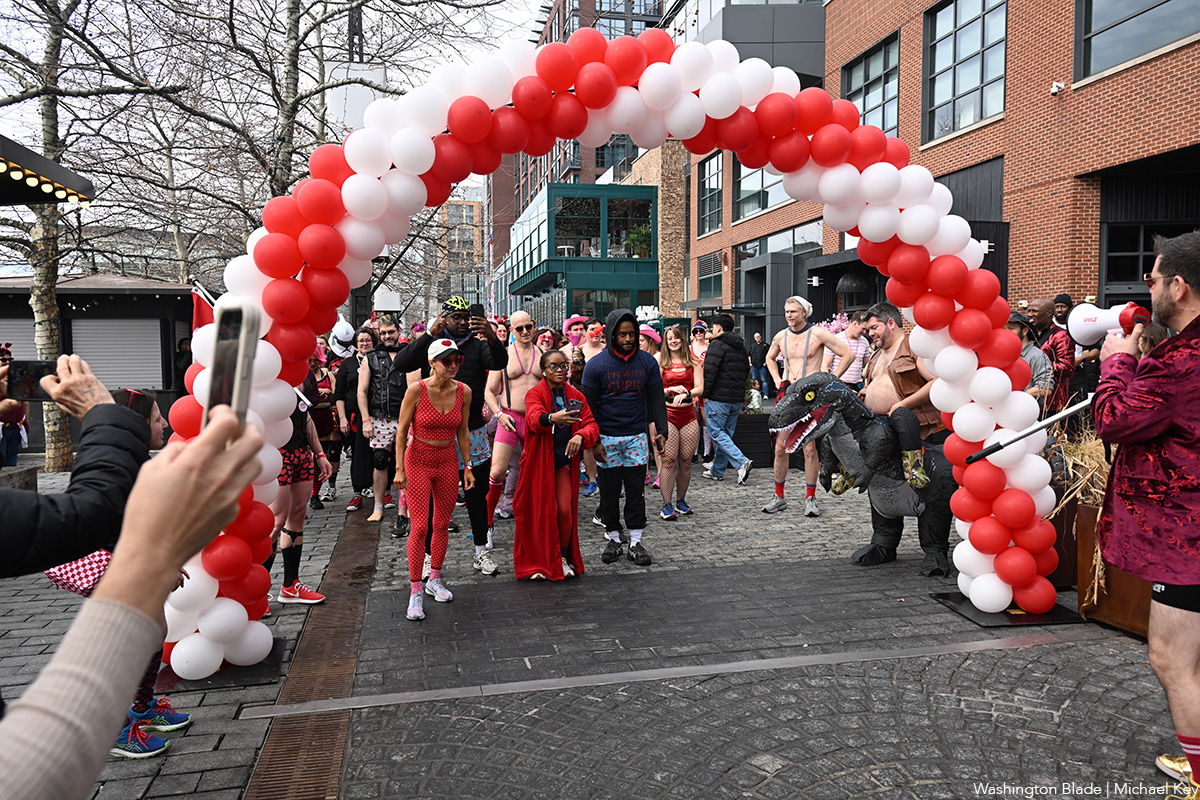
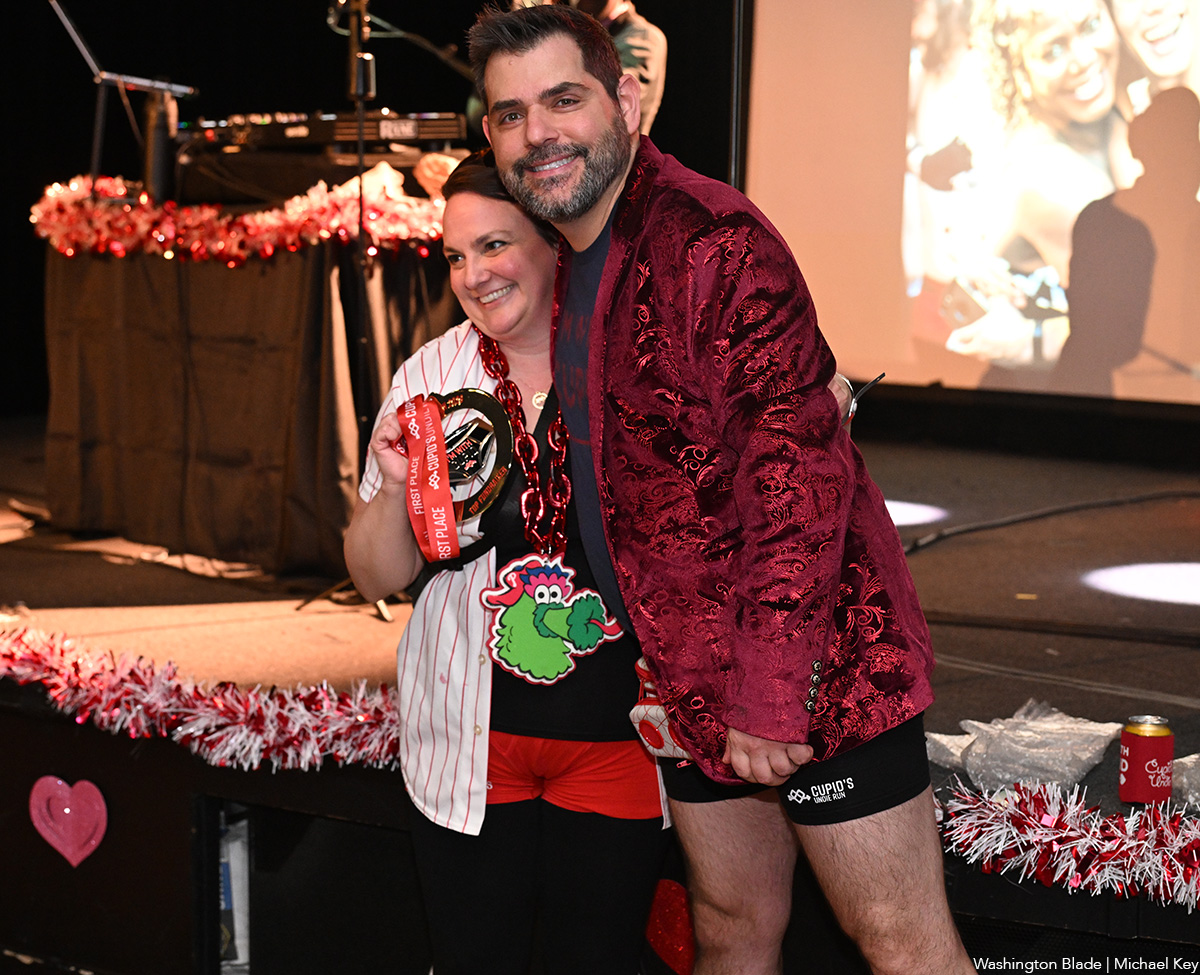
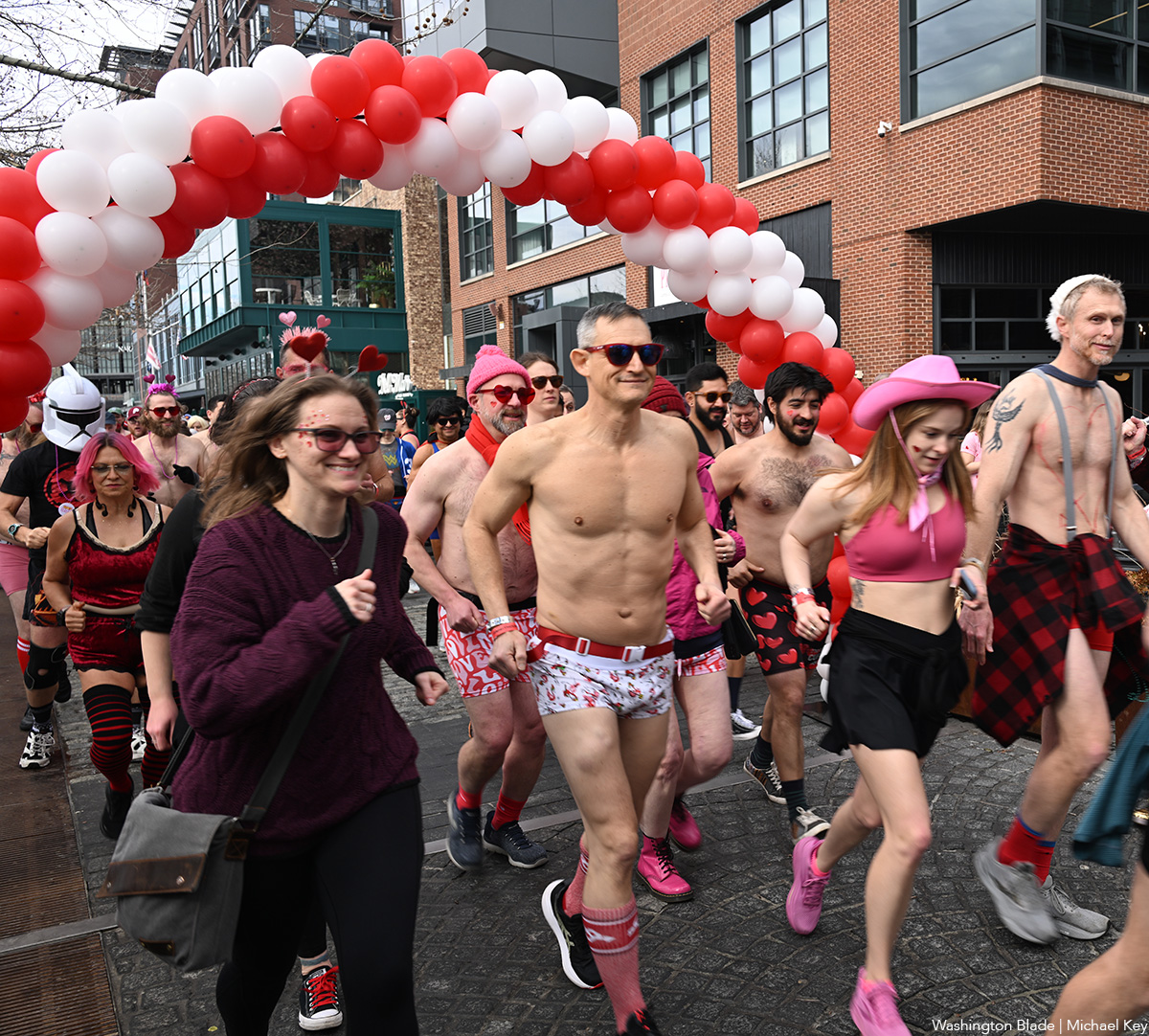
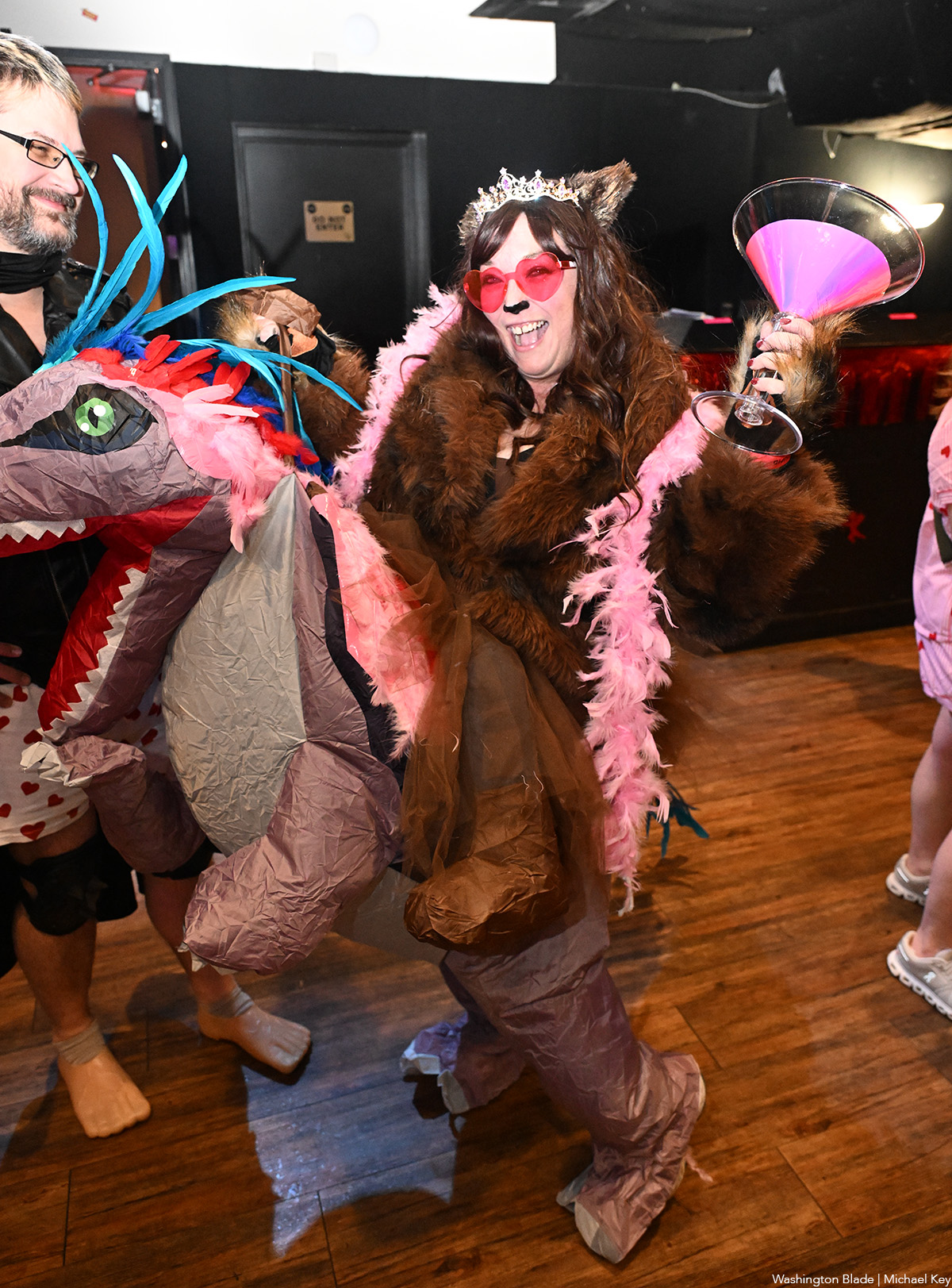
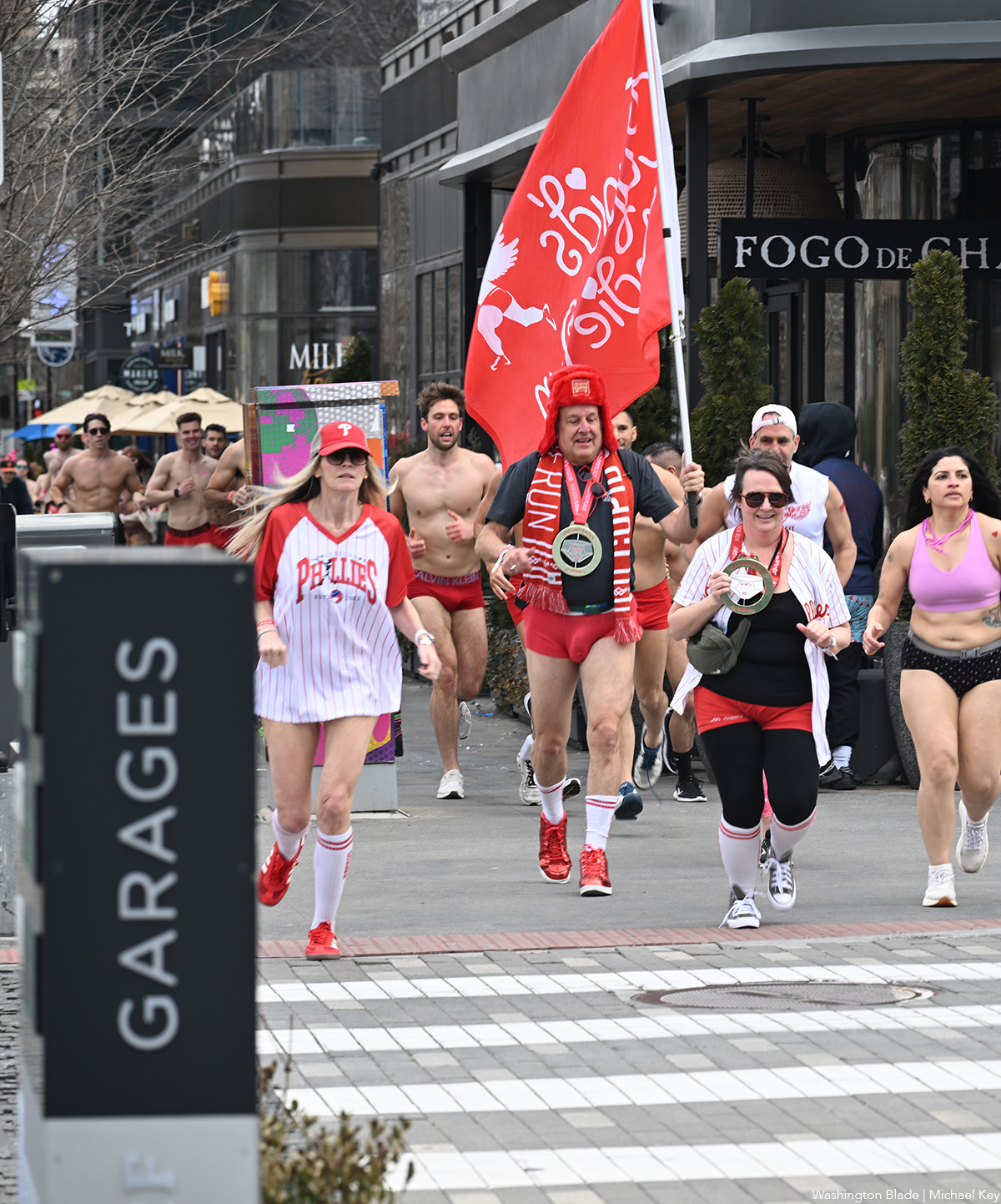
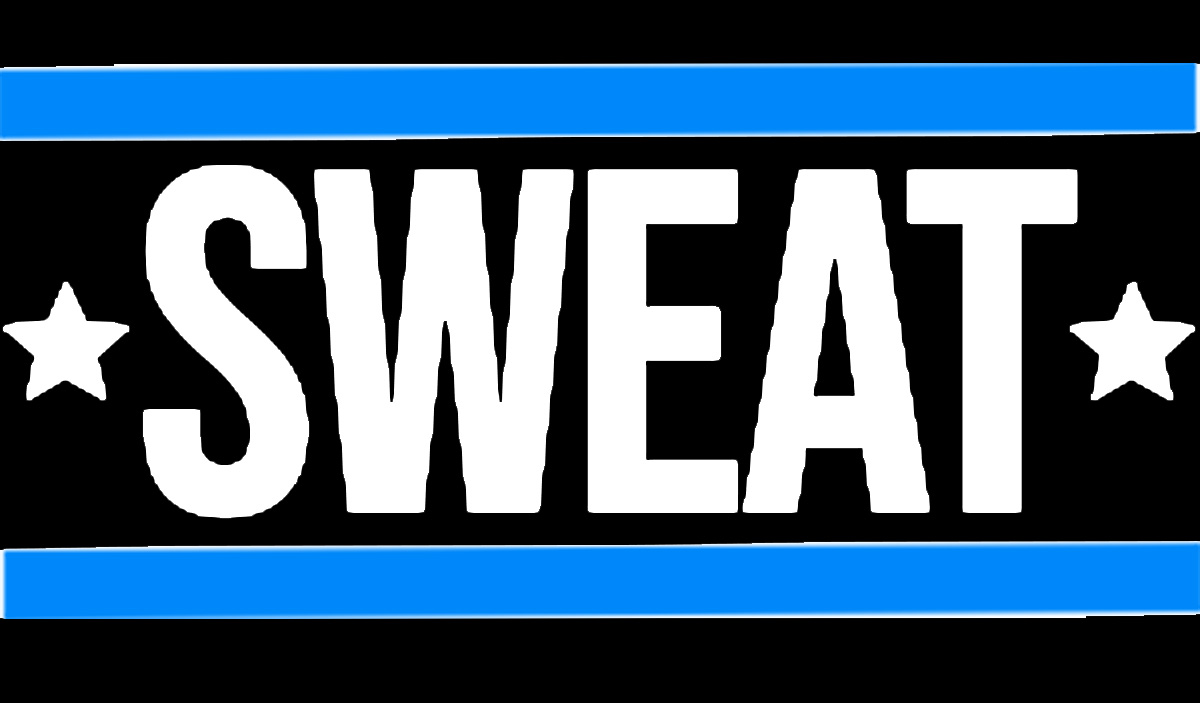
Sweat DC is officially expanding to Shaw, opening a new location at 1818 7th St., N.W., on Saturday, March 28 — and they’re kicking things off with a high-energy, community-first launch event.
To celebrate, Sweat DC is hosting Sweat Fest, a free community workout and social on Saturday, March 14, at 10 a.m. at the historic Howard Theatre. The event features a group fitness class, live DJ, local food and wellness partners, and a mission-driven partnership with the Open Goal Project, which works to expand access to youth soccer for players from marginalized communities.
For more details, visit Sweat DC’s website and reserve a spot on Eventbrite.

Friday, Feb. 20
Center Aging Monthly Luncheon with Yoga will be at noon at the D.C. LGBTQ+ Community Center. Email Mac at [email protected] if you require ASL interpreter assistance, have any dietary restrictions, or questions about this event.
Trans and Genderqueer Game Night will be at 7 p.m. at the D.C. Center. This will be a relaxing, laid-back evening of games and fun. All are welcome! We’ll have card and board games on hand. Feel free to bring your own games to share. For more details, visit the Center’s website.
Go Gay DC will host “First Friday LGBTQ+ Community Social” at 7 p.m. at Hotel Zena. This is a chance to relax, make new friends, and enjoy happy hour specials at this classic retro venue. Attendance is free and more details are available on Eventbrite.
Saturday, Feb. 21
Go Gay DC will host “LGBTQ+ Community Brunch” at 11 a.m. at Freddie’s Beach Bar & Restaurant. This fun weekly event brings the DMV area LGBTQ community, including allies, together for delicious food and conversation. Attendance is free and more details are available on Eventbrite.
LGBTQ People of Color will be at 7 p.m. on Zoom. This peer support group is an outlet for LGBTQ People of Color to come together and talk about anything affecting them in a space that strives to be safe and judgement free. There are all sorts of activities like watching movies, poetry events, storytelling, and just hanging out with others. For more information and events, visit thedccenter.org/poc or facebook.com/centerpoc.
Sunday, Feb. 22
Queer Talk DC will host “The Black Gay Flea Market” at 1 p.m. at Doubles in Petworth. There will be more than 15 Black queer vendors from all over the DMV in one spot. The event’s organizers have reserved the large back patio for all vendors, and the speak easy for bar service, which will be serving curated cocktails made just for the event (cash bar.) DJ Fay and DJ Jam 2x will be spinning the entire event. For more details, visit Eventbrite.
Monday, Feb. 23
“Center Aging: Monday Coffee Klatch” will be at 10 a.m. on Zoom. This is a social hour for older LGBTQ adults. Guests are encouraged to bring a beverage of choice. For more information, contact Adam at [email protected].
Tuesday, Feb. 24
Coming Out Discussion Group will be at 7 p.m. on Zoom. This is a safe space to share experiences about coming out and discuss topics as it relates to doing so — by sharing struggles and victories the group allows those newly coming out and who have been out for a while to learn from others. For more details, visit the group’s Facebook.
Genderqueer DC will be at 7 p.m. on Zoom. This is a support group for people who identify outside of the gender binary, whether you’re bigender, agender, genderfluid, or just know that you’re not 100 percent cis. For more details, visit genderqueerdc.org or Facebook.
Wednesday, Feb. 25
Job Club will be at 6 p.m. on Zoom upon request. This is a weekly job support program to help job entrants and seekers, including the long-term unemployed, improve self-confidence, motivation, resilience and productivity for effective job searches and networking — allowing participants to move away from being merely “applicants” toward being “candidates.” For more information, email [email protected] or visit thedccenter.org/careers.
Asexual and Aromantic Group will meet at 7 p.m. on Zoom. This is a space where people who are questioning this aspect of their identity or those who identify as asexual and/or aromantic can come together, share stories and experiences, and discuss various topics. For more details, email [email protected].
Thursday, Feb. 26
The DC Center’s Fresh Produce Program will be held all day at the DC Center. To be more fair with who is receiving boxes, the program is moving to a lottery system. People will be informed on Wednesday at 5 p.m. if they are picked to receive a produce box. No proof of residency or income is required. For more information, email [email protected] or call 202-682-2245.
Virtual Yoga Class will be at 7 p.m. on Zoom. This free weekly class is a combination of yoga, breathwork and meditation that allows LGBTQ community members to continue their healing journey with somatic and mindfulness practices. For more details, visit the DC Center’s website.

